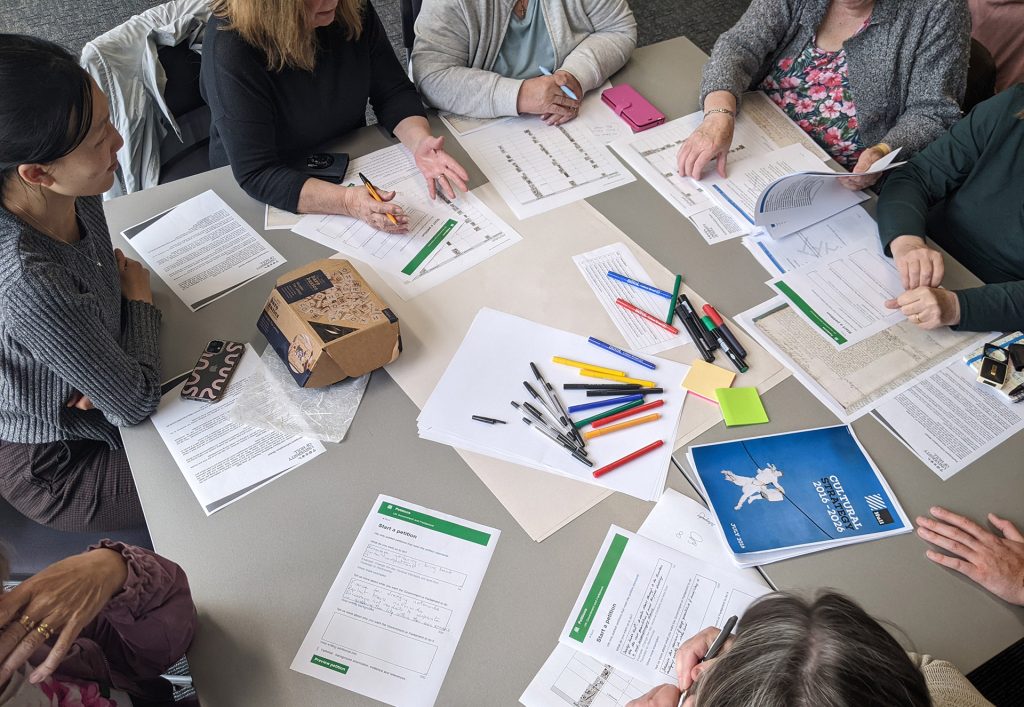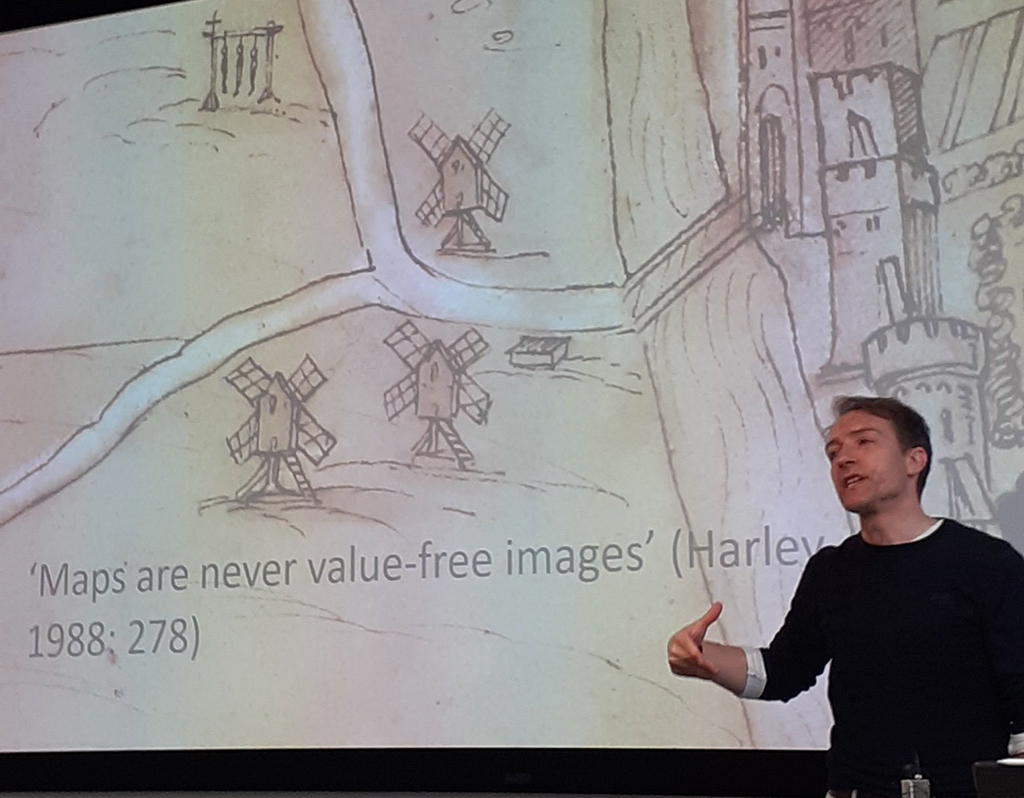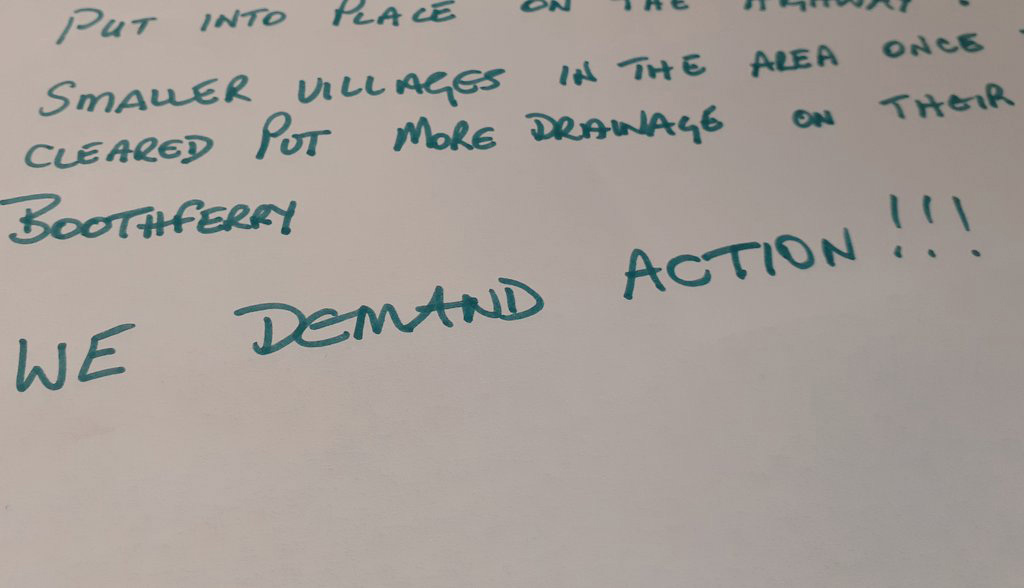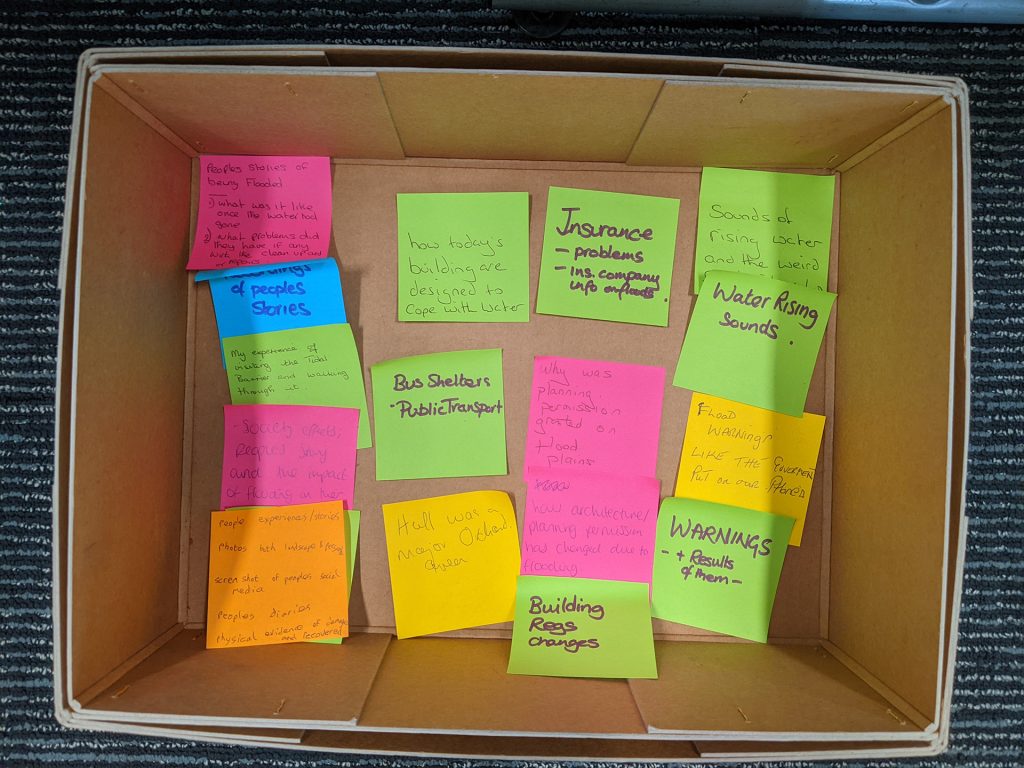Risky Cities team member, Dr Hannah Worthen looks back at a successful community workshop, delving into the historic records of the Hull History Centre.

On Thursday 8th June, members of the local community and staff from the University of Hull gathered at the Hull History Centre for a day-long workshop on the theme of ‘Watery Archives: Uncovering Hull’s Flood Histories’, led by the UKRI-funded ‘Risky Cities’ team. During the day participants had the opportunity to explore different types of historic records – from 16th Century maps to 20th Century newspapers – through a series of talks, hands-on workshop activities, and creative sessions.

The workshop aimed to share knowledge about Hull’s flood histories with participants, as well as to improve their skills and confidence in using archives for themselves, as a way of encouraging community members to participate in researching and creating Hull’s history. For example, one of the sessions focused on a 1622 petition from the residents of early modern Kingston-Upon-Hull to King Charles I. In it, they complained about ‘the dangerous river of Humber’ – which, ‘being a great and very forcible Arm of the Sea’, required them to maintain flood defenses costing £1000 a year (roughly equivalent to £130,000 in today’s money).
Having learned about how people lived with water and flood risk in historic Hull, participants were encouraged to draft their own petitions about the challenges of doing so in the city today. One participant wrote a petition for flood alleviation on Boothferry Road which asked ‘Why hasn’t there been flood alleviation put into place on the highway?’ and another asked for the return of gardening competitions to encourage local residents to ‘cooperate in greening the city within their own environs’.

The final activity for the day asked participants to think about what they think should be included in a hypothetical ‘Watery Archive’ which would document Hull’s flood histories past and present. Thinking beyond what might normally be considered for preserving in archives, they came up with a fantastic range of ideas from ‘the sound of rising water’ to ‘containers of water from different parts of the river’ and ‘people’s stories of being flooded’.

This workshop, and the work of Risky Cities more broadly, has demonstrated the power of community engagement for fostering meaningful conversations about climate change that can lead to real-life impact. We hope to continue to work with our community groups in future as we continue to use the lessons of the past to foster climate resilience for the future.
If you are interested in Risky Cities community workshops, get in touch with the team via riskycities@hull.ac.uk
